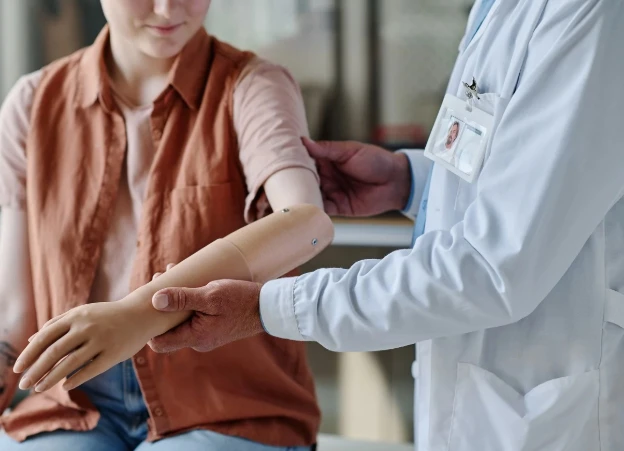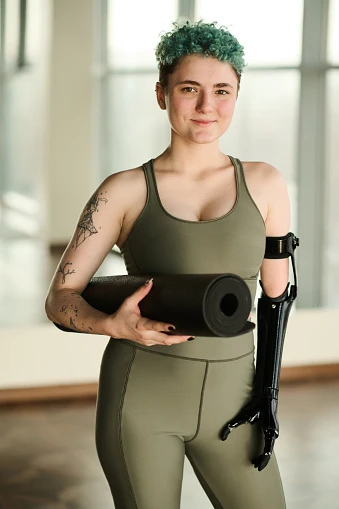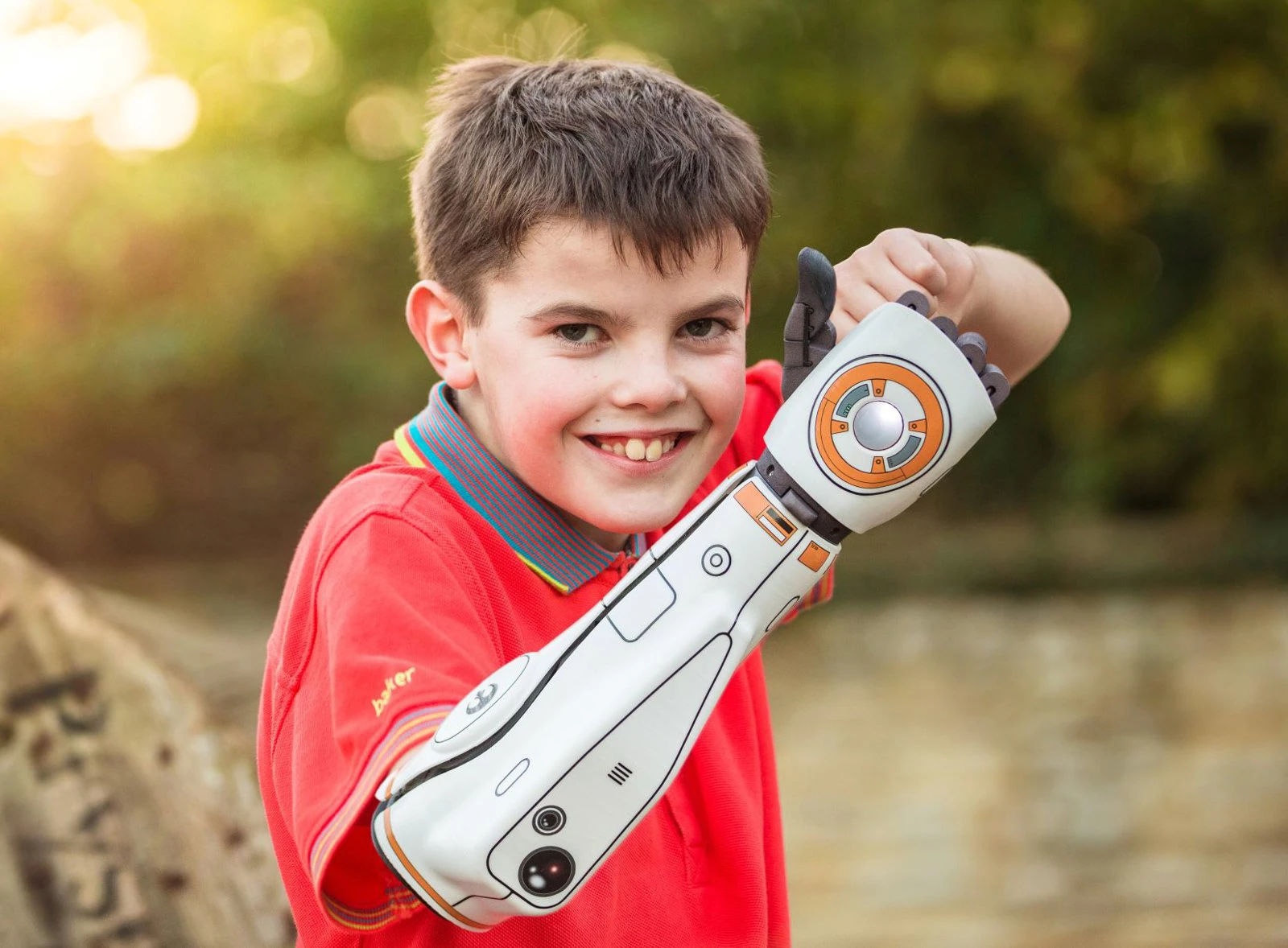At the Amputee Care Center (ACC), we are happy to help you choose the prosthesis that best suits your needs, lifestyle and budget. Contact us for a no-obligation consultation and find out how you can increase your own ability with an innovative bionic prosthetic hand and some practice!
Hero bionic hand prosthesis
The Hero Arm hand prosthesis from Open Bionics is a lightweight, 3D-printed bionic hand with six grip patterns in a breathable socket design, providing greater comfort and flexibility. Compared to other bionic prosthetic hands, the Hero Arm is lighter, more affordable and offers more personalisation options with interchangeable covers. It is the most popular choice among teenagers, young adults and active adults who want a top prosthesis with a futuristic look.
Bebionic bionic hand prosthesis
Ottobock's Bebionic hand is an advanced bionic prosthesis with individually moving fingers, allowing for natural and precise hand movements. With multiple grip patterns and a powerful grip, this prosthesis offers versatility for everyday tasks, from typing to holding delicate objects. With a robust and ergonomic design, the bebionic hand ensures a comfortable fit and reliable performance.
i-Limb Ultra bionic hand prosthesis
Össur's i-Limb Ultra is an advanced bionic hand with individually powered fingers and a rotating thumb, allowing for natural and precise hand movements. Thanks to its titanium-reinforced fingers, this prosthesis has increased durability and can handle heavier loads. With multiple grip patterns and intuitive control via muscle signals or a mobile app, the i-Limb Ultra offers flexibility in daily use. This ensures improved independence, allowing you to effortlessly perform activities such as writing, eating and grasping objects.






